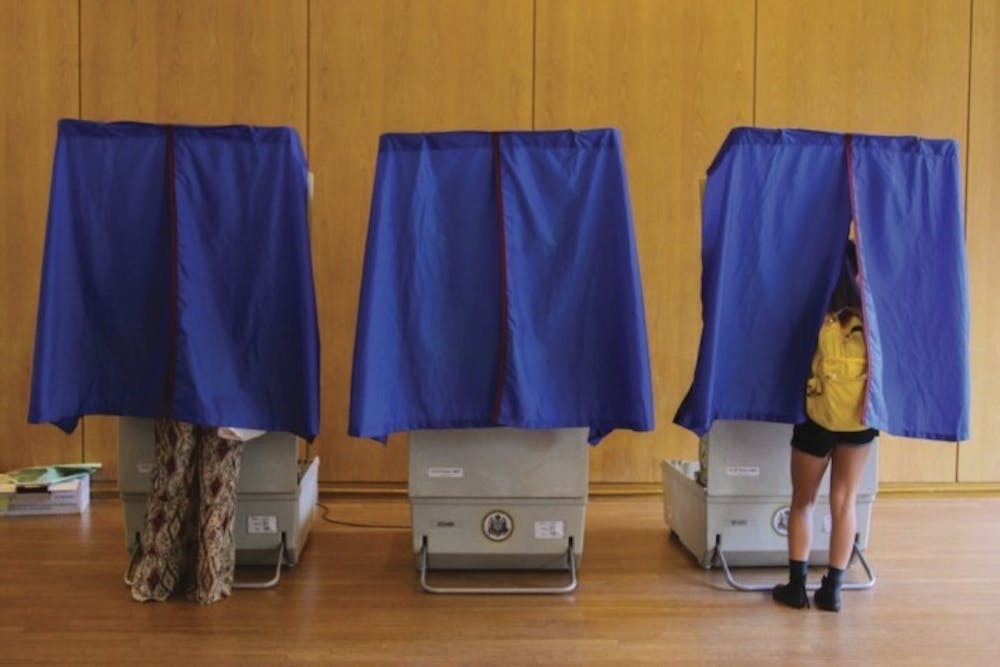
Millions of Americans will head to the polls to vote in the midterm elections on Nov. 6, electing 435 House members and 35 senators in the process. In Philadelphia, there are five local, state, and national races on the ballot, in addition to a ballot question on the issue of public spending.
U.S. Senate
Two-term Senate incumbent Bob Casey Jr. is seeking re-election this November, running against Republican challenger and Congressman Lou Barletta of Pennsylvania’s current 11th District.
The campaign has attracted national attention in the fight for control of the Senate, with both President Trump and former President Obama endorsing and campaigning for their preferred candidates.
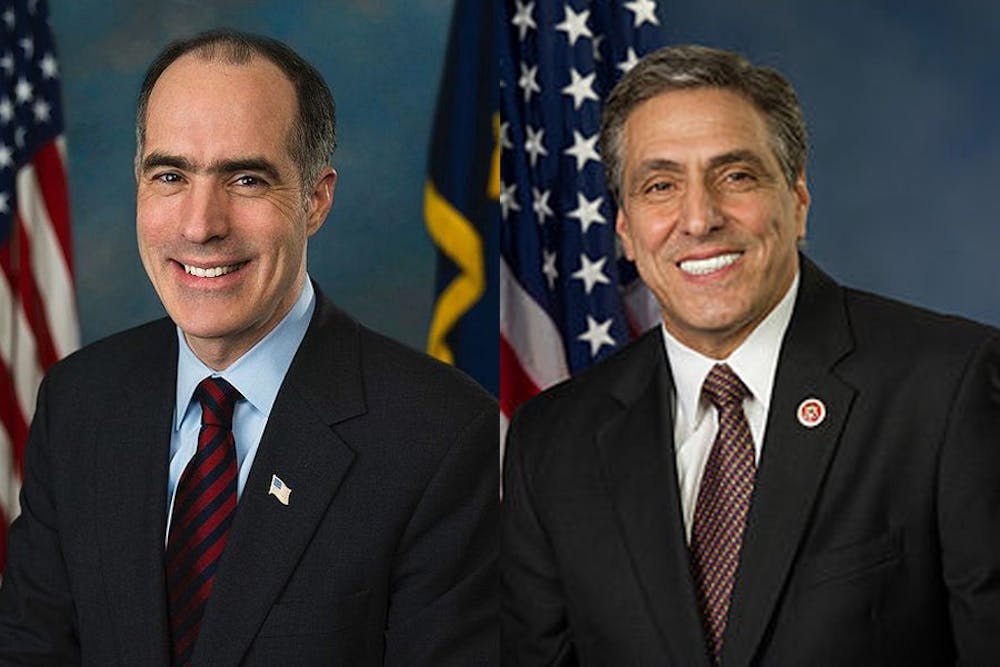
The Democrat: Casey ranks near the middle of the Democratic Caucus in terms of liberalism, according to the political analysis website Govtrack. During his campaign for re-election, Casey has prioritized the issues of healthcare and the economy.
While in the Senate, Casey has focused much of his legislative agenda and energy on these subjects, voting against the repeal of the Affordable Care Act last year and introducing bills that expanded tax credits for the middle class.
While Casey has digressed from the Democratic platform in the past on certain social issues, such as abortion and gun control, he has become more left-leaning on some issues in recent years.
The Philadelphia Inquirer reported that Casey has become more supportive of gun control reform. However, Casey still appears to be opposed to partial-birth (late-term) abortions, voting to advance a bill banning the practice in Jan. 2018.
The Republican: Opposing Casey in his quest for re-election is Congressman Barletta, who has served in the U.S. House of Representatives since 2011. Like Casey, Barletta has made the economy and government spending focal points of his campaign, touting his successes in cutting billions in government spending and ensuring “fair trade for American Workers.”
While in Congress, Barletta has been a staunch conservative and supporter of President Trump’s agenda, with Govtrack recently ranking him as the 45th most conservative member of the House.
In addition to the economy, other issues emphasized by the Barletta campaign include cracking down on illegal immigration, the opioid crisis, and protecting the Second Amendment.
The Other Candidates: The Libertarian Party is running electrical contractor project manager Dale Kerns, while the Green Party is running clean energy consultant Neal Gale in the election as well.
U.S. House of Representatives - Pennsylvania's Third Congressional District
This race marks the first election since Pennsylvania’s Congressional Districts were redrawn by the state Supreme Court. Formerly, Penn was in the Second District, represented by Congressman Dwight Evans (D) since 2016. Evans is running for election in the Third District, a district that includes Penn’s campus. He is opposed by Republican Bryan Leib, who has no prior political experience.
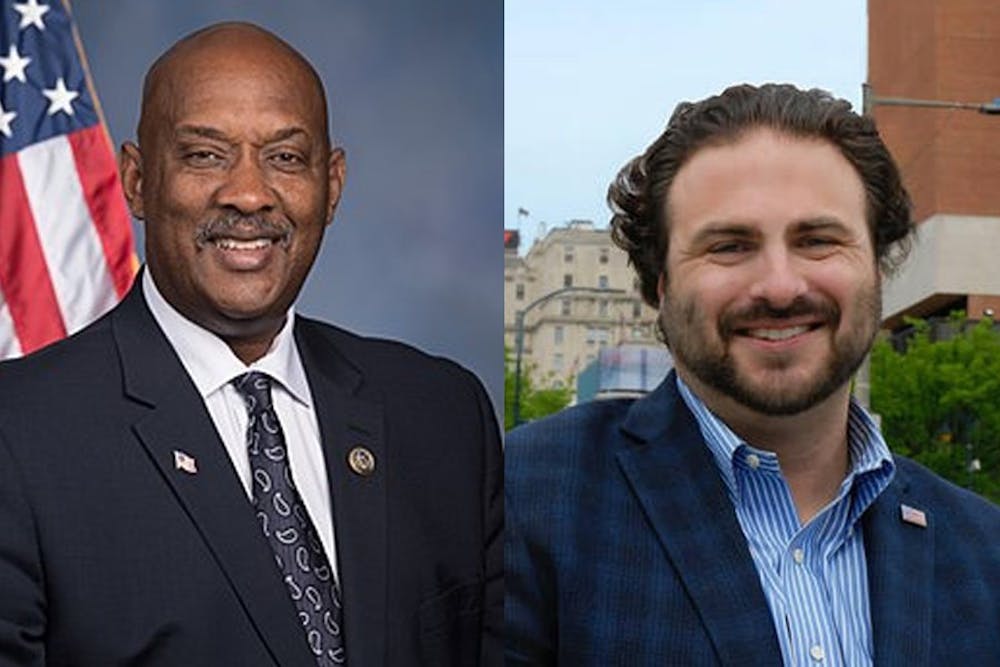
The Democrat: Evans has proven to be a staunch progressive Democrat throughout his time in Congress. According to FiveThirtyEight, Evans has opposed President Trump’s agenda on a given issue about 84 percent of the time. In his campaign for re-election, Evans has emphasized urban development and affordable housing.
The Republican: Leib, the treasurer for the Philadelphia Young Republicans, is running to unseat Evans. In his campaign, Leib has emphasized the issues of government responsibility and corruption, calling the current state of city finances “devastatingly out of order,” while also labelling the behavior of Democratic incumbents “filthy.”
Leib told The Daily Pennsylvanian in March that if elected to Congress, he plans to introduce a bill creating term-limits in Congress.
Governor’s Race
In Pennsylvania, voters choose a Governor and Lieutenant Governor on a joint ticket, meaning they will choose one party’s candidates to fill both positions. The Pennsylvania race is being contested between incumbent Governor Tom Wolf (D) with running mate John Fetterman, running against Republican challenger Scott Wagner with running mate Jess Bartos.
The campaign has taken a negative tone in recent weeks, most notably when Wagner claimed in a video that he will “stomp all over” Governor Wolf’s face.
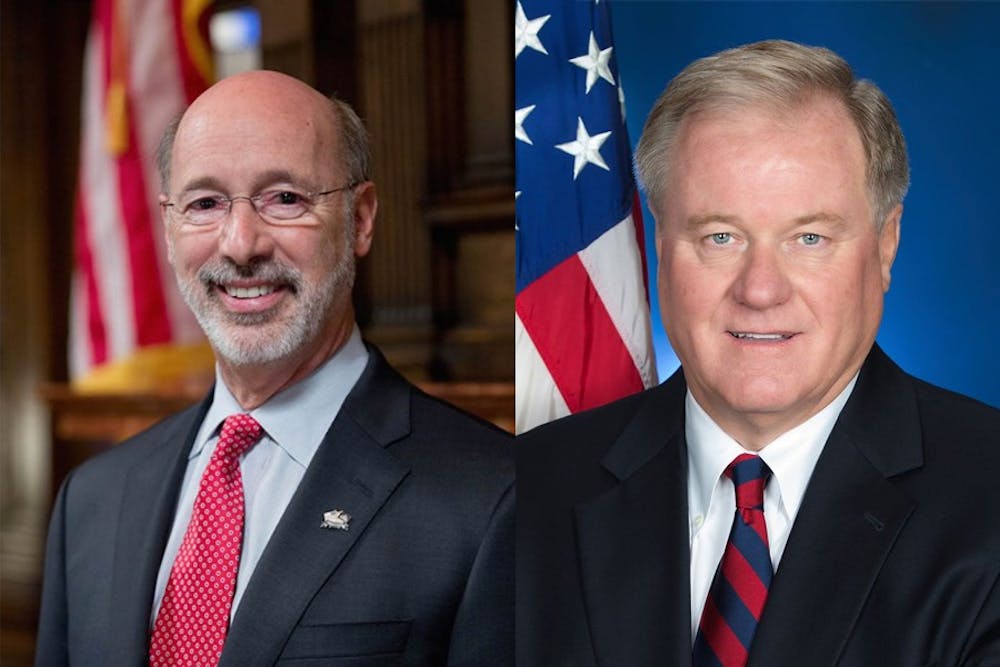
The Democrat: During his almost four years as Governor, Wolf has expanded Medicaid and restored $1 billion dollars of funding cuts in education. He has also established an Opioid Command Center and expanded access to treatment to fight the state’s pressing opioid crisis. In his campaign for re-election, Wolf has sought to protect and enhance his legislative legacy, arguing that his opponent would roll back Medicaid expansion and cut education spending.
The Republican: A State Senator from 2014 to 2018, Wagner is highlighting his political experience and his endorsement from President Trump.
During his time in the State Senate, Wagner pushed the body in a more fiscally conservative direction, according to the York Daily Record, demanding greater transparency and accountability on how state money is spent. In his gubernatorial campaign, he has emphasized economics, noting how as Governor, he would free business owners “from regulations and burdensome processes” in an effort to grow the state economy.
The Other Candidates: The Green Party is running the ticket of Paul Glover and Jocolyn Bostick for Governor/Lt. Governor, while the Libertarian Party is running Ken Krawchuk and Kathleen Smith.
Pennsylvania State Senate - District 8
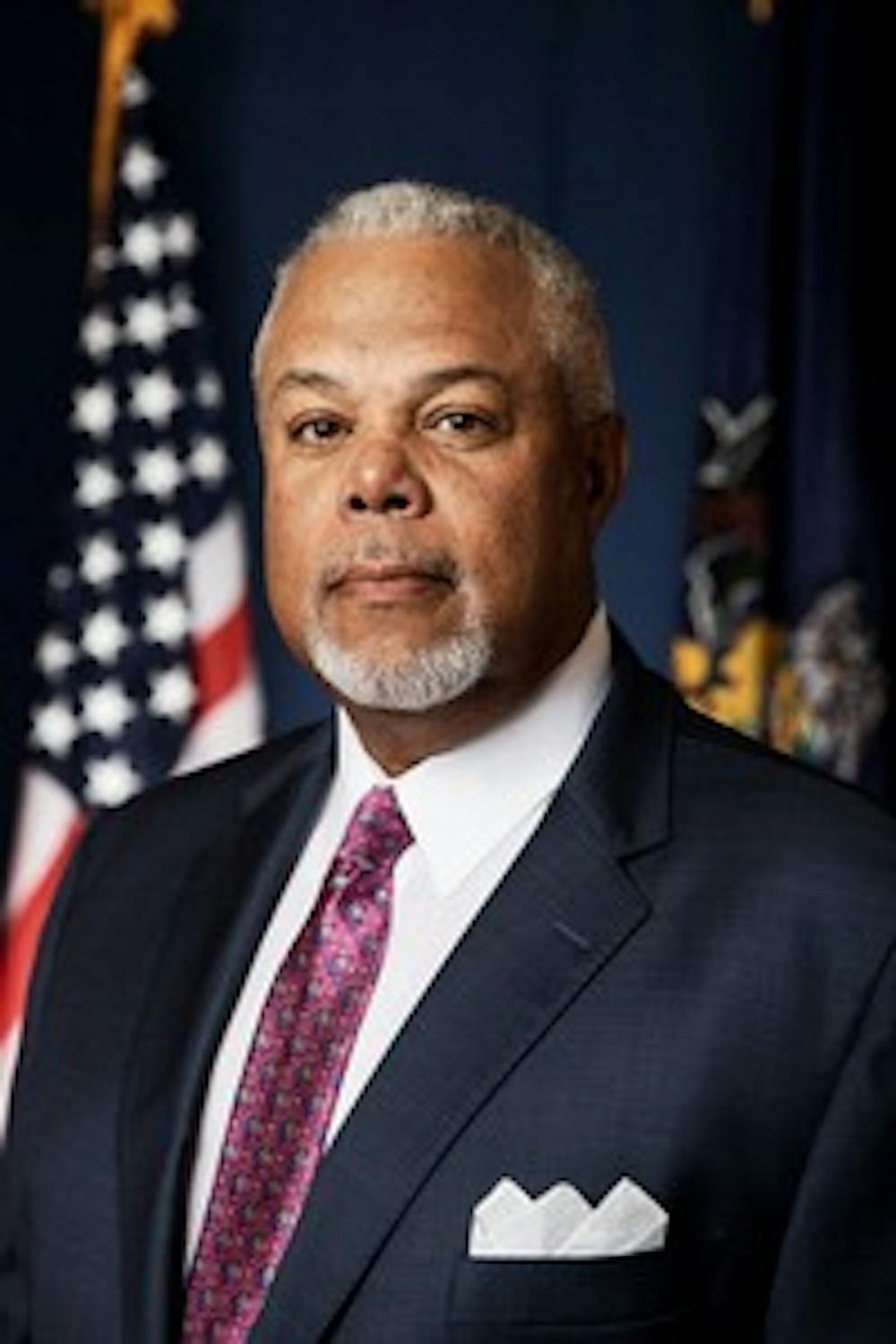
Incumbent State Senator Anthony Williams (D) is unopposed in his bid for re-election. Having served in the State Senate since 1998, Williams is the ranking Democrat on a pair of key administrative committees in the State Senate: The State Government Committee and the Intergovernmental Operations Committee, both of which help manage the State Government’s operations and bureaucracy.
While in the State Senate, Williams has championed social justice issues, recently introducing legislation on criminal justice reform and pay equity.
Pennsylvania House of Representatives - District 188
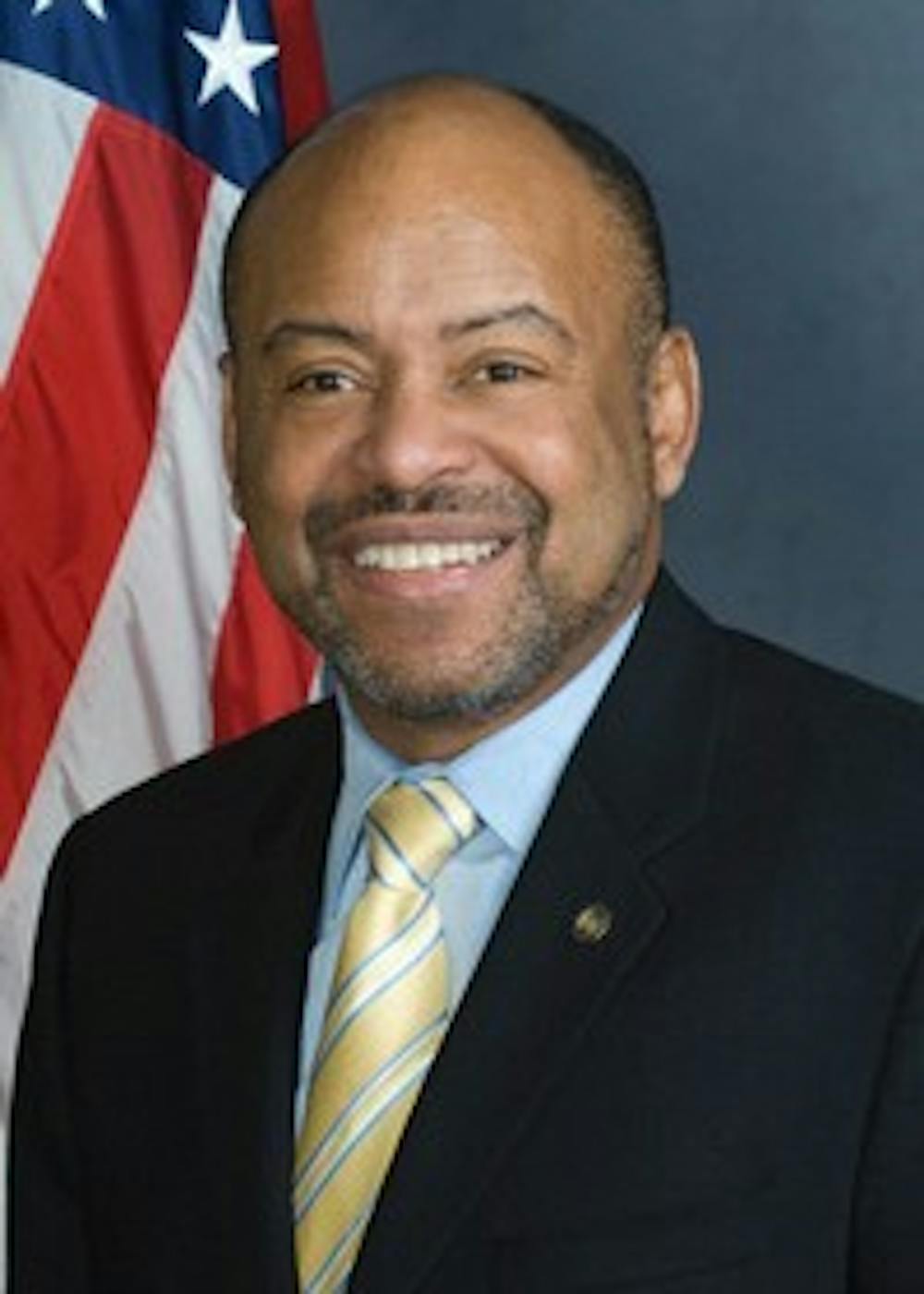
The Candidate: Much like State Senator Williams, District 188 incumbent James Roebuck Jr. (D) is running for re-election unopposed. Having served in the State House since 1985, Roebuck Jr. is the Democratic Chair of the Education committee.
Roebuck Jr. has proposed the idea of free tuition for students at Pennsylvania community colleges and state system universities.
The Ballot Question
"Should the City of Philadelphia borrow ONE HUNDRED EIGHTY-ONE MILLION DOLLARS ($181,000,000.00) to be spent for and toward capital purposes as follows: Transit; Streets and Sanitation; Municipal Buildings; Parks, Recreation and Museums; and Economic and Community Development?"
What it means: The City of Philadelphia, if the ballot question is approved, will borrow $181 million for certain types of public infrastructure, including public transportation, museums, and sanitation.
The Daily Pennsylvanian is an independent, student-run newspaper. Please consider making a donation to support the coverage that shapes the University. Your generosity ensures a future of strong journalism at Penn.
Donate






